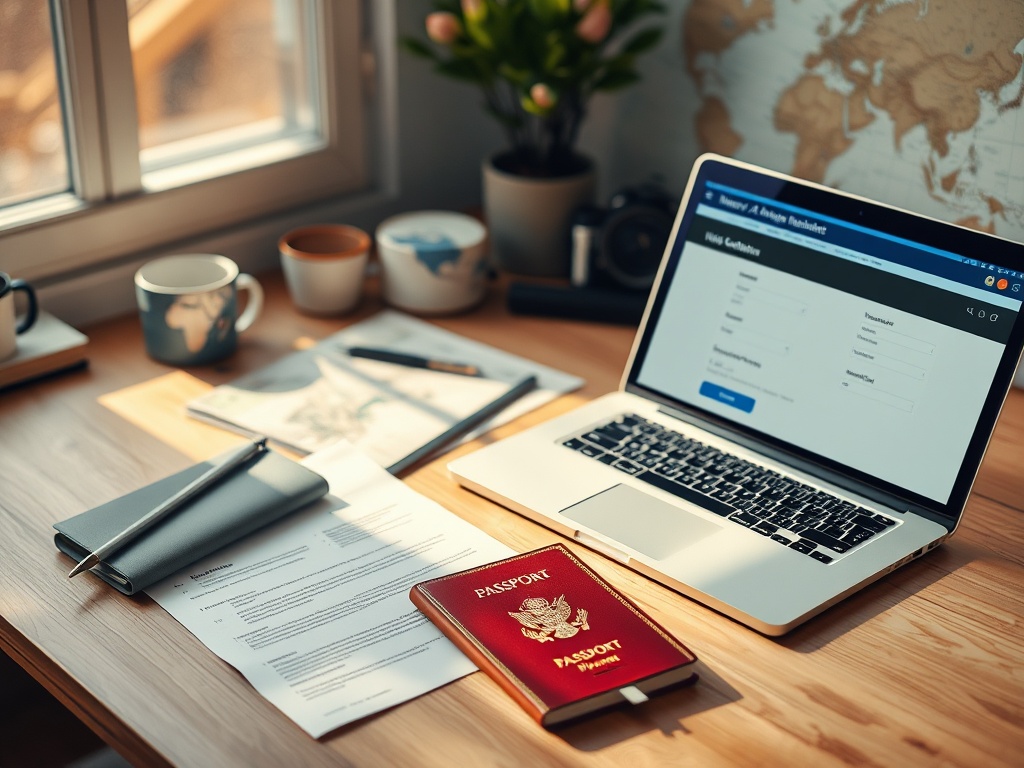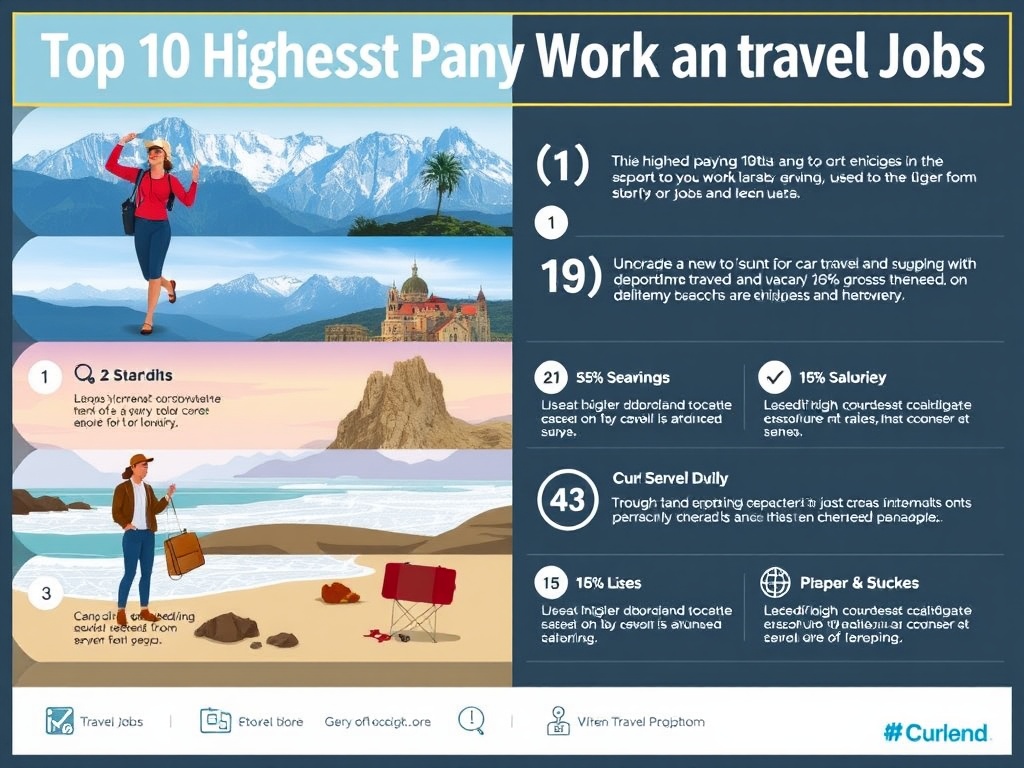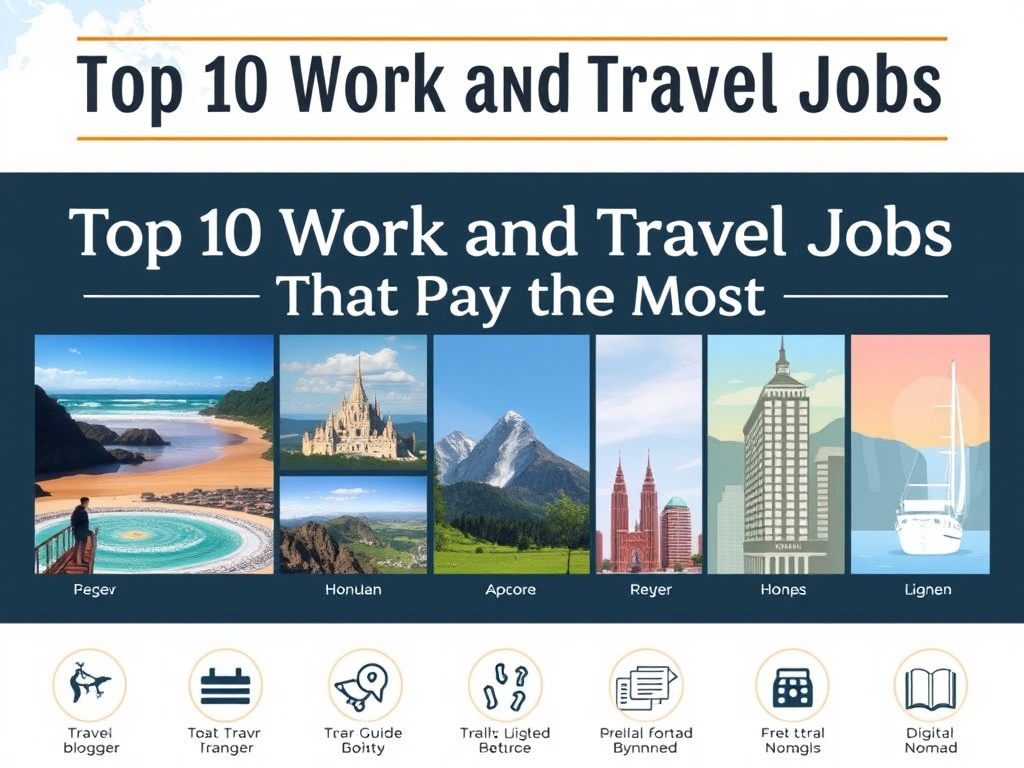Neglecting to Research the Company: The Hidden Pitfalls

When diving into the world of work and travel jobs, many applicants often underestimate the significance of researching the companies they are applying to. A lack of understanding about the employer can lead to missed opportunities and, in some cases, a job that does not align with your values and expectations. In this section, we will explore the reasons why researching a company is crucial and how it can impact your application process.
Each organization has its unique culture, which can greatly influence your job satisfaction and performance. By investigating a company’s values, mission statement, and workplace environment, you can determine if it aligns with your personal and professional goals. This understanding can also empower you to tailor your application materials, such as your resume and cover letter, to better resonate with the company’s ethos.
- Check Company Values: Visit the company’s website and look for their mission statement or core values.
- Read Employee Reviews: Platforms like Glassdoor provide insights into the work environment from current and former employees.
- Examine Social Media Presence: Follow the company’s social media accounts to see how they interact with employees and customers.
During interviews, you may be asked questions that require a deeper understanding of the company. Without proper research, you may find yourself fumbling through answers or, worse, revealing a lack of interest. Interviewers appreciate candidates who demonstrate knowledge about the organization, as it shows dedication and enthusiasm for the role. Here are some tips to prepare effectively:
- Know the Products or Services: Familiarize yourself with what the company offers.
- Understand Recent Developments: Stay updated on recent news or changes within the company.
- Prepare Insightful Questions: Ask questions that reflect your research and genuine interest, such as inquiries about future projects or company growth.
Overlooking Essential Documentation: Your Passport to Success

When embarking on the journey of applying for work and travel jobs, one of the most critical yet often overlooked aspects is ensuring that you have all the essential documentation in order. The documentation not only serves as a gateway to international opportunities but also reflects your preparedness and professionalism. Forgetting or neglecting to gather necessary documents can lead to delays, complications, or even disqualification from your desired position. It is vital to recognize that proper documentation is not just a formality; it is your passport to success.
Among the various documents required for work and travel positions, a valid passport is paramount. However, other important papers include visas, work permits, and health insurance certifications, which can significantly impact your eligibility. Focusing solely on your CV or cover letter while disregarding these documents can jeopardize your application. For instance, while a polished resume may impress hiring managers, without a valid visa, you cannot legally work abroad. Therefore, it is essential to maintain a checklist of required documents tailored to the specific job or country you are applying to. This proactive approach not only keeps you organized but also ensures that you meet all legal requirements.
To avoid the pitfalls of overlooking essential documentation, create a systematic plan. Begin with compiling a list of all required documents based on the job specifications and destination. Next, set reminders for renewals and expirations; for example, many countries require passports to be valid for at least six months beyond your intended stay. Additionally, consider establishing a digital folder where you can store scanned copies of your documents, making them easily accessible for applications and interviews. This level of preparedness not only enhances your credibility but also alleviates stress as your travel date approaches. Remember, being organized is key to seizing opportunities and avoiding last-minute complications that could derail your plans.
Failing to Tailor Your Application: The Personal Touch that Matters
In today’s competitive job market, a generic application simply won’t cut it. Employers receive numerous applications for every position, and they are looking for candidates who stand out. Failing to customize your application materials can lead to missed opportunities and a lack of connection with potential employers. This section delves into the importance of personalizing your application and the specific strategies you can employ to make a lasting impression.
When you tailor your application, you demonstrate your genuine interest in the role and your understanding of the company’s needs. A personalized application shows that you have taken the time to research the organization and align your skills and experiences with their requirements. This not only enhances your chances of getting noticed but also sets the stage for a more meaningful conversation during interviews.
To effectively tailor your application, consider the following strategies:
- Analyze the Job Description: Break down the job posting and highlight key qualifications and responsibilities. This allows you to emphasize the most relevant aspects of your experience.
- Match Your Skills to Their Needs: Create a clear connection between your skills and the specific requirements of the position. Use examples from your previous work or volunteer experiences that showcase your capabilities.
- Craft a Unique Cover Letter: Instead of using a one-size-fits-all cover letter, write a personalized one that addresses the hiring manager by name and reflects your understanding of the company culture.
- Showcase Your Passion: Let your enthusiasm for the role and the company shine through in your application. A heartfelt expression of why you want to work for them can make a significant impact.
To ensure that your application is tailored effectively, keep this checklist in mind:
| Application Material | Customization Tips |
|---|---|
| Resume | Highlight relevant experience and skills that match the job description. |
| Cover Letter | Address specific needs of the company and express your enthusiasm. |
| Portfolio (if applicable) | Include projects that relate directly to the role. |
| LinkedIn Profile | Ensure consistency with your application and highlight relevant endorsements. |
By taking the time to personalize your application, you not only improve your chances of getting noticed but also position yourself as a thoughtful and dedicated candidate. Remember, the effort you invest in tailoring your materials can make all the difference in landing your dream work and travel job.
Ignoring Cultural Differences: Bridging the Gap for Work and Travel
In the realm of work and travel, the ability to navigate and respect cultural differences can be the key to success. While many applicants focus on their qualifications and experiences, they often overlook the importance of cultural awareness. This oversight can lead to misunderstandings, conflicts, and missed opportunities. In this section, we will delve into why acknowledging cultural differences is essential and how it can enhance your work and travel experience.
Every country has its own set of cultural norms and practices that shape how people interact, communicate, and conduct business. These nuances can range from etiquette and communication styles to values and beliefs. For instance, while some cultures may appreciate direct communication, others might value indirectness and subtlety. By taking the time to research and understand these differences, you can better prepare yourself for a successful transition into a new work environment. Recognizing these nuances can help you build rapport with colleagues and adapt to the workplace more effectively.
Once you have a grasp of the cultural context, the next step is to adapt your approach accordingly. This means being flexible in your communication style, work ethic, and even your social interactions. For example, in some cultures, building personal relationships is a prerequisite to conducting business. In contrast, others may prioritize efficiency and professionalism above all else. By being mindful of these differences and adjusting your behavior, you can foster a collaborative environment that promotes mutual respect and understanding. Additionally, showing a willingness to learn and embrace new cultural practices can leave a positive impression on your employers and colleagues, enhancing your professional reputation.
Furthermore, it is crucial to approach cultural differences with an open mind. Engaging in conversations with locals and colleagues about their customs and traditions can provide invaluable insights and help you integrate more seamlessly into your new environment. Ultimately, your ability to bridge cultural gaps can not only enrich your work experience but also expand your personal horizons.
Underestimating the Importance of Networking: Unlocking Opportunities
In the competitive landscape of work and travel jobs, candidates often overlook the power of networking. While qualifications and tailored applications are crucial, building and nurturing professional relationships can significantly enhance your chances of landing that dream position. Networking is not merely about gathering contacts; it’s about creating genuine connections that can lead to valuable opportunities. In this section, we will explore why effective networking is essential and share strategies to help you expand your professional circle.
Networking can often create a ripple effect that opens doors you may not have even considered. When you connect with industry professionals, you gain access to insider knowledge, job openings, and referrals that can set you apart from other applicants. Moreover, these connections can provide mentorship and guidance, helping you navigate the complexities of international work environments. By actively engaging in networking, you can leverage the experiences and insights of others to enhance your own career trajectory.
To maximize your networking efforts, consider implementing the following strategies:
- Attend Industry Events: Participate in conferences, seminars, and workshops related to your field. These gatherings provide excellent opportunities to meet professionals who can offer advice or refer you to potential job openings.
- Utilize Social Media: Platforms like LinkedIn allow you to connect with industry leaders and join relevant groups. Share your insights and engage with others to establish your presence in the community.
- Informational Interviews: Reach out to individuals in roles you aspire to and request informational interviews. This not only helps you gather valuable information but also builds rapport with professionals who may assist you in the future.
- Follow Up: After meeting someone new, send a follow-up message to express appreciation and maintain the connection. This can be a simple thank-you note or a message sharing an interesting article related to your conversation.
Networking is not just a one-time effort; it’s about fostering long-term relationships. Regularly check in with your contacts, share updates about your journey, and be supportive of their endeavors as well. A mutual exchange of support and encouragement can solidify your connections and create a network that is both beneficial and rewarding. Keep in mind that the relationships you build today can lead to unforeseen opportunities tomorrow, making networking an invaluable element of your job search strategy.
Submitting Generic Resumes: How Individuality Can Set You Apart
In the competitive realm of work and travel positions, a generic resume can be your ticket to the rejection pile. With employers sifting through countless applications, standing out is essential. A resume that reflects your individuality not only showcases your unique skills and experiences but also resonates more with hiring managers. In this section, we will explore the significance of a personalized resume and provide actionable strategies to craft a standout document.
When you submit a generic resume, you miss the opportunity to highlight what makes you exceptional. Employers are eager to see candidates who bring something distinctive to the table, whether it’s a unique skill set, diverse experiences, or a passion for the industry. Tailoring your resume allows you to emphasize these strengths and make a lasting impression.
Key Points to Personalize Your Resume:
- Reflect Your Personality: Infuse your resume with a touch of your personality. This could be through a unique summary statement or by showcasing your interests that align with the company’s culture.
- Highlight Relevant Experiences: Rather than listing all your work history, choose experiences that directly relate to the job you are applying for. This targeted approach demonstrates your suitability for the role.
- Use Specific Examples: Instead of vague descriptions, use specific examples that illustrate your achievements and contributions in previous roles. Quantifying your accomplishments can add weight to your claims.
Your resume should not just be a collection of bullet points; it should tell a story. A well-crafted narrative that connects your experiences and aspirations can captivate hiring managers. Consider how each role you’ve held has shaped your professional journey and how it aligns with the work and travel position you’re targeting.
Tips for Creating Your Narrative:
- Link Your Experiences: Draw connections between different roles and how they have prepared you for the job at hand. This continuity can make your application more coherent.
- Showcase Growth: Highlight how you’ve evolved in your career. Employers appreciate candidates who are committed to professional development and learning.
- Be Authentic: Your resume should reflect your true self. Avoid using jargon or templates that don’t align with your voice. Authenticity resonates with employers.
Once you’ve personalized your resume, it’s crucial to ensure that it’s visually appealing and easy to read. A cluttered or overly complicated design can detract from your message. Invest time in formatting, keeping it concise yet informative. Remember, the aim is to grab the employer’s attention quickly and effectively.
In summary, submitting a generic resume is a mistake that can easily be avoided. By emphasizing your individuality, crafting a compelling narrative, and ensuring a polished presentation, you can significantly enhance your chances of success in the competitive landscape of work and travel jobs.
Procrastinating on Applications: Seizing Opportunities Before They’re Gone
In the fast-paced world of work and travel, procrastination can be a silent killer of opportunity. Many applicants find themselves caught in a cycle of hesitation, convinced that they have plenty of time to perfect their applications. However, this mindset can lead to missed deadlines and lost chances. The reality is that many positions are filled quickly, often within days of being posted. Therefore, putting off your application not only means risking your chances but also missing out on roles that could align perfectly with your skills and aspirations.
To counteract the tendency to procrastinate, it’s essential to establish a proactive approach to your job search. Start by setting clear deadlines for yourself, independent of the official application deadlines. For instance, aim to submit your application at least a week before the due date. This cushion allows time for unforeseen circumstances, such as unexpected commitments or last-minute revisions.
Another effective strategy is to break the application process into manageable tasks. Instead of viewing the entire application as a daunting chore, focus on completing one section at a time—whether it’s drafting your resume, writing a cover letter, or gathering necessary documentation. This method makes the process less overwhelming and encourages steady progress.
To further motivate yourself, create a sense of urgency around your applications. Consider the competitive landscape of work and travel jobs—many individuals are vying for the same opportunities. By reminding yourself of the potential rewards, such as unique experiences and career advancement, you can foster a more immediate desire to act. Visualize the positions you are interested in and the lifestyle they could provide. This mental picture can serve as a powerful motivator to take action without delay.
Moreover, leverage your network to keep yourself accountable. Share your goals with friends or mentors who can encourage you and check in on your progress. Their support can provide the additional push needed to overcome procrastination. In the end, taking decisive action can lead to exciting prospects and the realization of your work and travel dreams.



